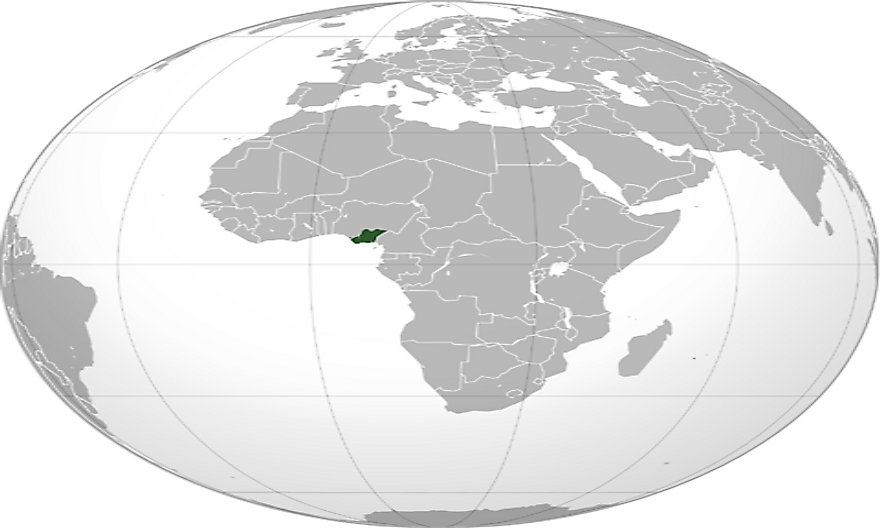What was the Republic of Biafra?

The Republic of Biafra was a break-away nation from the Republic of Nigeria. The Republic of Biafra was formerly declared a sovereign nation in 1966 by Chukwuemeka Odumegwu Ojukwu (Military Governor of Eastern Nigeria). This declaration led to the Nigerian Civil War. The Republic of Biafra existed between 1967 and 1970 before it surrendered to the Federal Military Government of Nigeria.
The Geographical Location Of The Republic Of Biafra
The Republic of Biafra was formed in an area of Southeastern Nigeria predominantly inhabited by the Igbo community. To the east, it was bordered by Cameroon and to the north and west it was bordered by the Republic of Nigeria. The size of this country was approximately 29,000 square miles. Other tribes who inhabited this country apart from the Igbo included Ibibio, Efik, Annang, and Ijaw.
The Cause Of The Nigerian Civil War
The Biafra secession was the main cause of the Nigerian civil war also known as the Biafra war. After the independence of Nigeria in 1960, there were tensions among the Nigerian communities as the new boundaries of the country did not reflect the earlier ethnic boundaries that had been set. The northern part was Muslim, made up of the majority Hausa and Fulani communities. The south was mainly Christian with the Igbo in the Southeast while the south was populated by the Yoruba communities. The military coup in January 1966 led to the killing of 30 political leaders including the Prime Minister of Nigeria and the northern premier. It was perceived as an Igbo coup since the premier of the southern region and the president (both Igbo) were not killed. In July, 1999 there was another military counter-coup staged by the northern officers. By September about 30,000 people of Igbo were killed in the north, and there were backlashes in the eastern cities deepening further the ethnic tension in the country.The southern part was rich with oil and Nigeria was beginning to depend on the resource. The conflict lasted for almost three years, with the North fighting to reclaim the Southeast and the southeast fighting to secede. Almost two million Nigerians died during this civil war. Many citizens of the Republic of Biafra were starved to death because the north blocked food and medical supply.
The Surrender Of The Republic Of Biafra
The raid on the Republic of Biafra by the Federal Military Army got worse towards the end of 1969 and Biafra was divided into half by the North. The then military leader of Biafra, Ojukwu handed over his leadership to Major-General Phillip Effiong. Ojukwu then exiled himself and his family to Ivory Coast. Major General Philip Effiong consulted with his strategic committee and decided to surrender to the Republic of Nigeria. The surrender took place in January 1970, and the Republic of Biafra was completely absorbed. The African countries that recognized Biafra as a nation include their neighbors like Gabon and Ivory Coast, the Republic of Zambia, and Tanzania. Other foreign nations from Europe and parts of Africa did not recognize Biafra as a country but provided support during the civil war (such as Israel). In Europe, Norway, France, Spain, the Vatican, and Portugal provided financial support and relief food, while In Africa only South Africa gave support. Christian and non-governmental organizations also participated in giving support to the Republic of Biafra. These groups included Holy Ghost Fathers of Ireland, US Catholic Relief, Caritas International, and Joint Church Aid.
Recent Attempts On Secession
The quest for the secession of the Republic of Biafra has been re-invigorated. Before 2005, many pro-Biafra groups existed but operated either as a shadow government or in exile. The ongoing struggle for secession started in 2005, but the leader of the Movement for the Actualization of the Sovereign State of Biafra (MASSOB) was jailed for treason. During 2009, MASSOB again launched a Biafra passport without the knowledge of federal government. In 2016, Supreme Council of Elders of the Indigenous People of Biafra sued the federal government for denying them right of secession. Many people have been killed by the federal government of Nigeria, but the struggle by the Biafra community persists.







